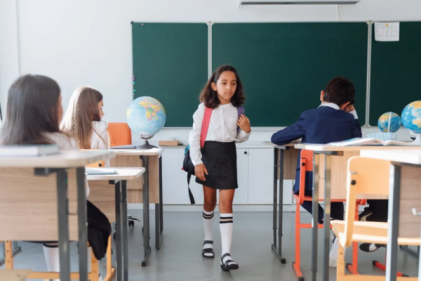Dyslexia is a learning difficulty which affects the acquisition of fluent and accurate reading and spelling skills. Approximately 10 per cent of the population are dyslexic.
Nowadays, dyslexia is recognised as a learning disability and most schools aim to provide extra help for children with dyslexia.
Most parents worry about the quality of their dyslexic child’s education and want to help them at home where possible.
These are several ways you can help a child with dyslexia to learn and thrive, while having fun at the same time.
1. Read to your child
Dyslexic children can find reading in school very stressful which turns them off books. By reading to them, you can take the pressure off and they will learn that reading can be a pleasurable activity.
It also helps improve their vocabulary, helps them understand how words ought to be pronounced and help them stay up-to-date with books their peers have read.
2. Talk to your child
Inform your child about what dyslexia is, how it might affect them and what they can do to overcome it.
Listen to their own thoughts and worries about it, no matter how young your child is, they are bound to have an opinion.
3. Find what kind of learning suits them
Dyslexic children are often very bright and their reading and writing may not always reflect this.
Children learn in different ways, maybe your child is a visual learner (learning from what they see around them) or a kinaesthetic learner (they learn best by doing something, rather than learning off reams of theory).
Find what suits your child and encourage them to learn in this way.
4. Get other family members to help out
If you don’t have much time to spend reading to your child or helping them with homework, why not ask a grandparent, cousin or older sibling to spend time with them?
Learning from different adults will enhance your child’s understanding and knowledge and strengthen their relationship also.
5. Learn the S.O.S spelling method
Your child will need to develop some basic literacy skills and while the traditional repetitive method may not work for them, the Simultaneous Oral Spelling method may help.
It is a multi-sensory method which involves the child repeating words, writing them down and tracing over the letters. This method is useful for children with other learning disabilities also.
6. Seek support
The best people to advise you are parents who have raised dyslexic children themselves.
Find a support group in your area or see if there are any other parents in your school or neighbourhood who have children with dyslexia or similar learning disabilities to form your own group.
7. Play games together
Whether it’s singing songs, board games or outdoor games, play is a great way to help your child learn.
With younger kids, try nursery rhymes and simple games like I spy. Board games such as chess and monopoly are good ways to develop older children’s logical skills.






